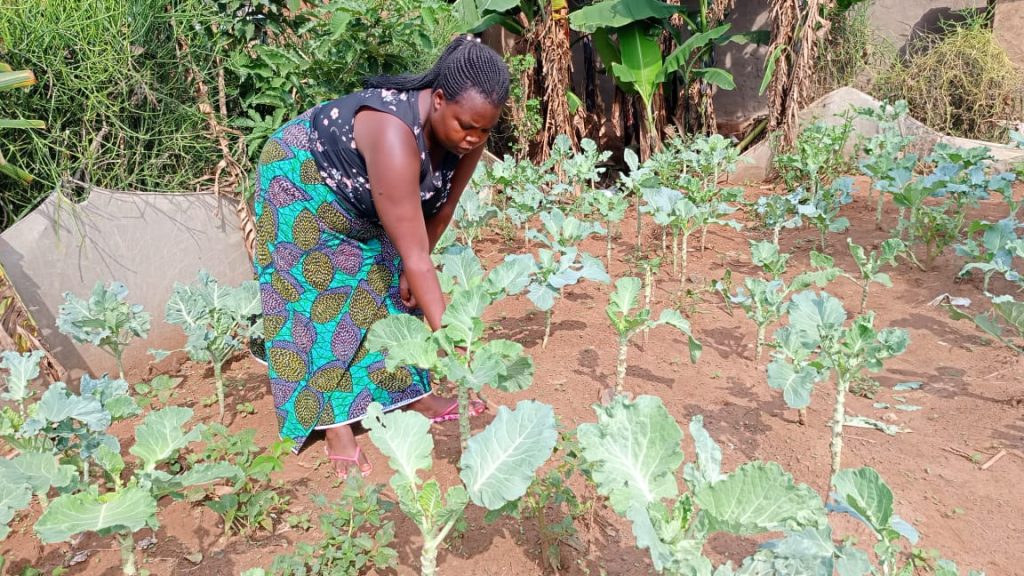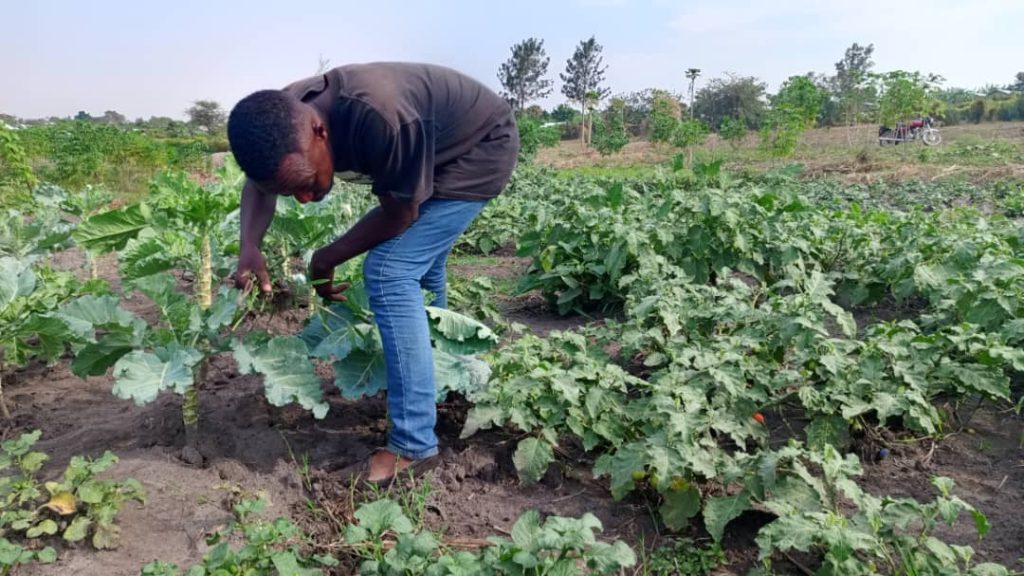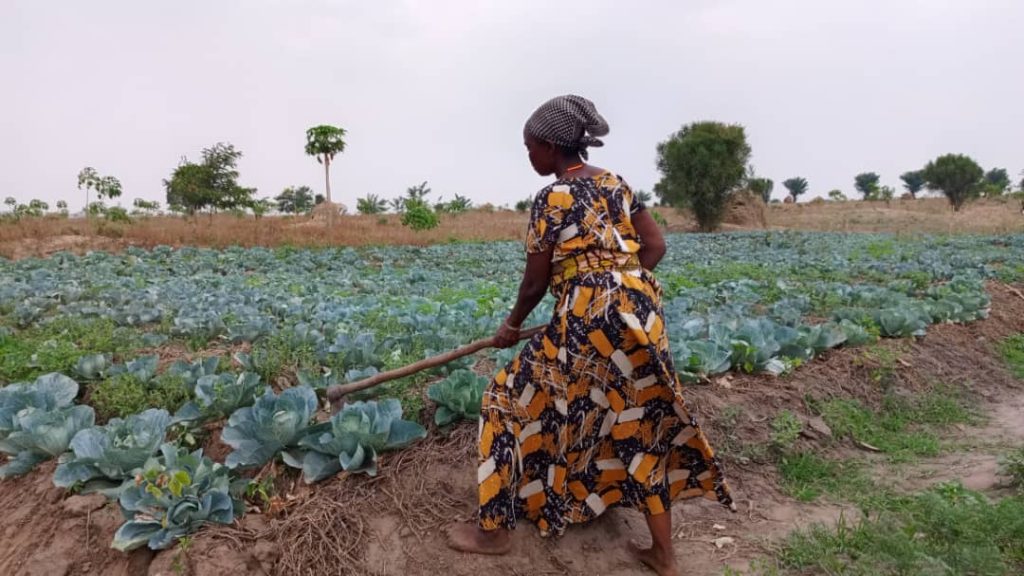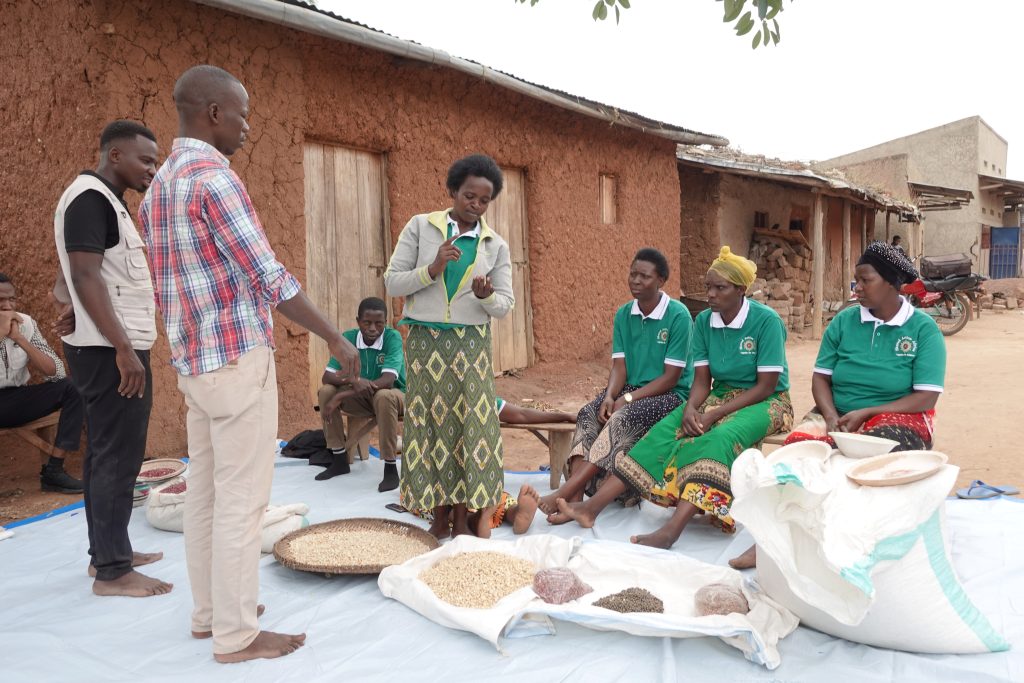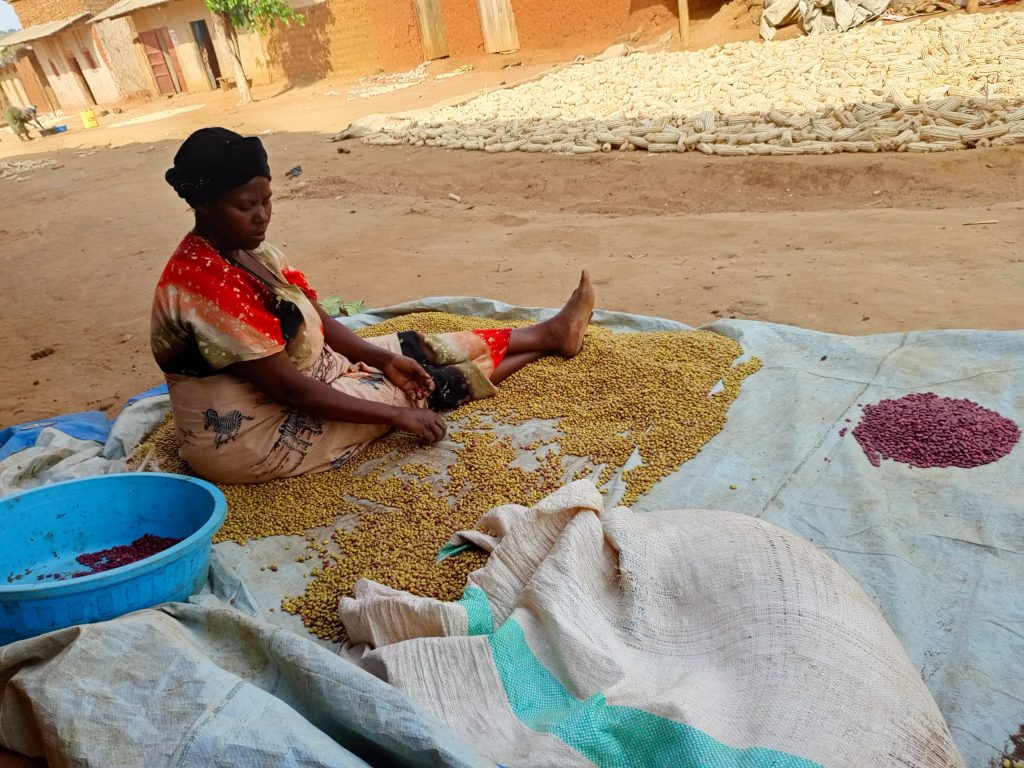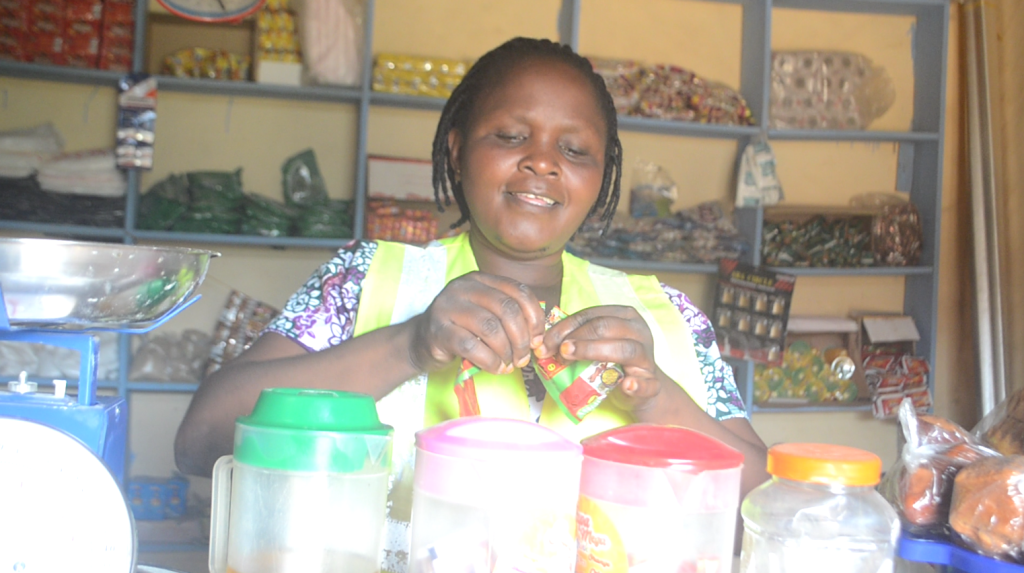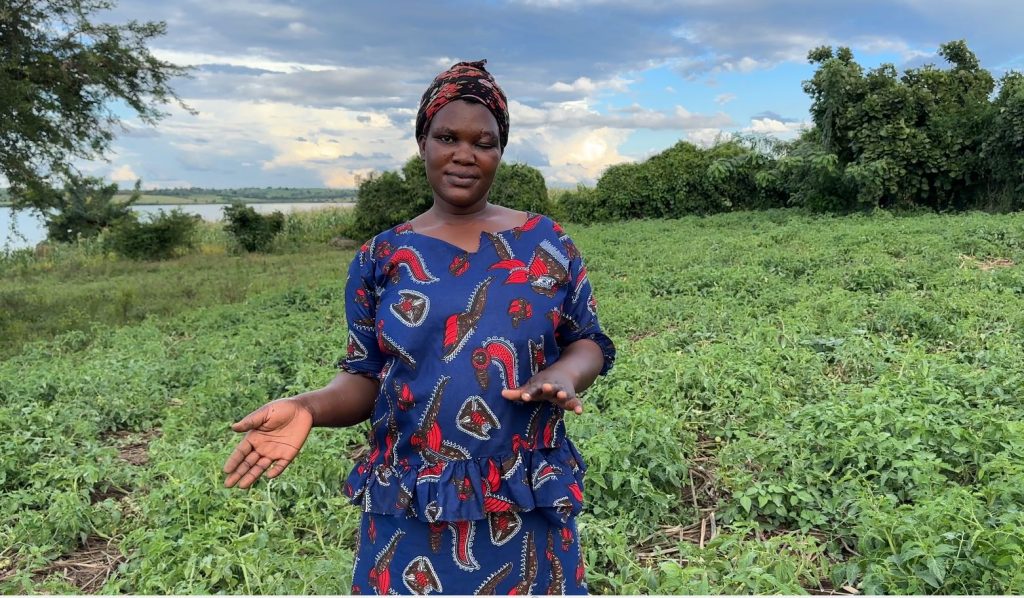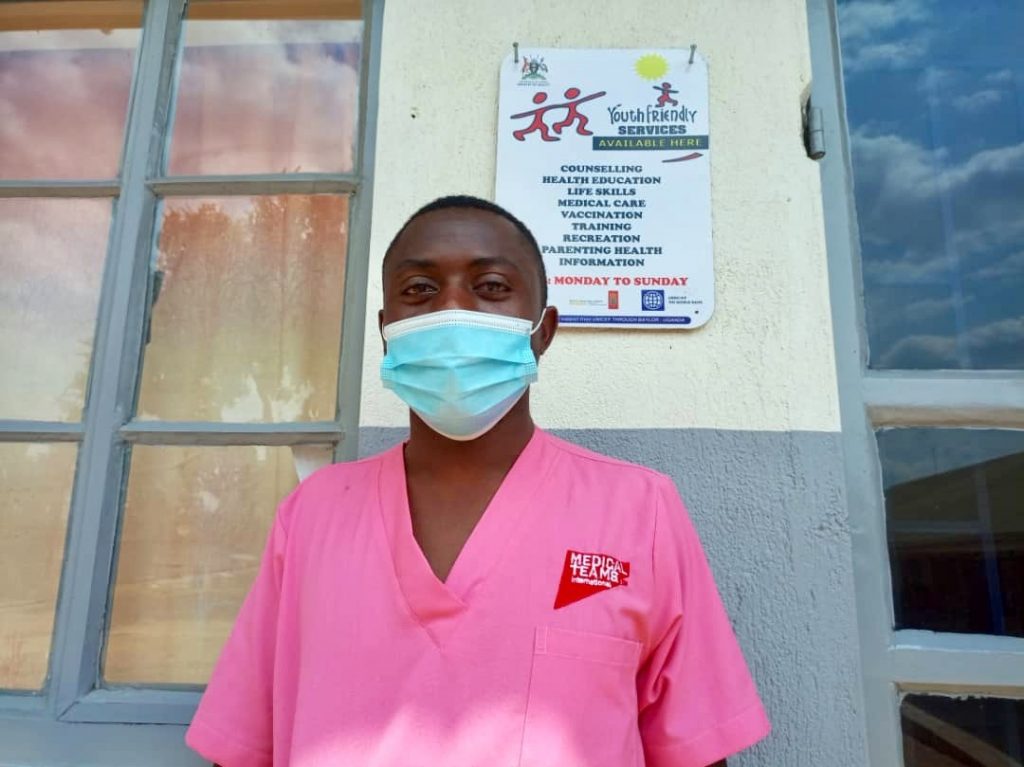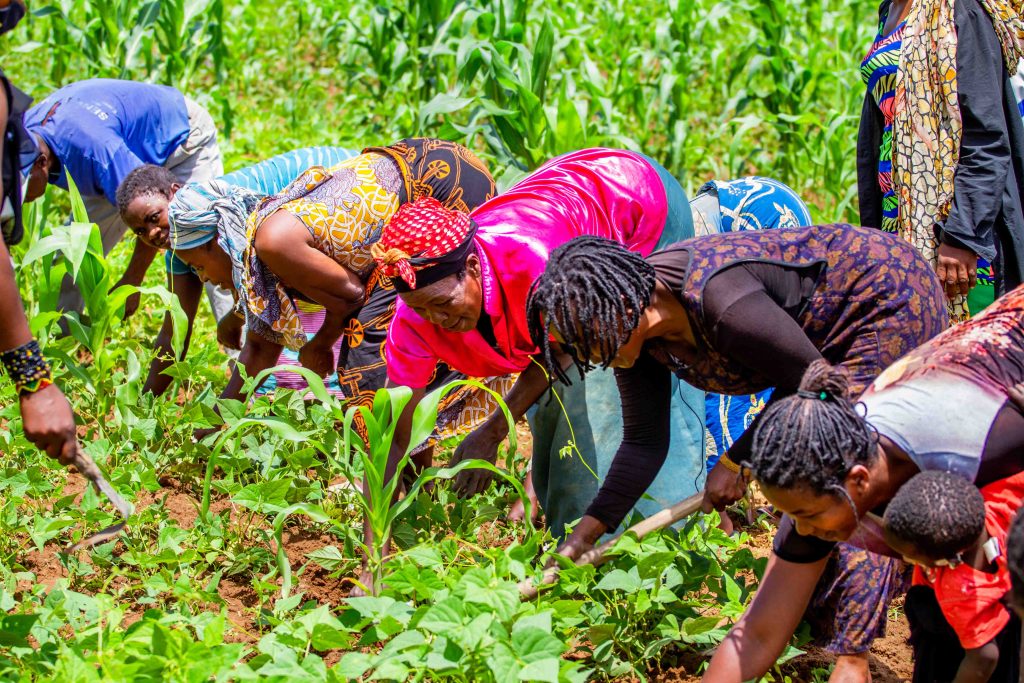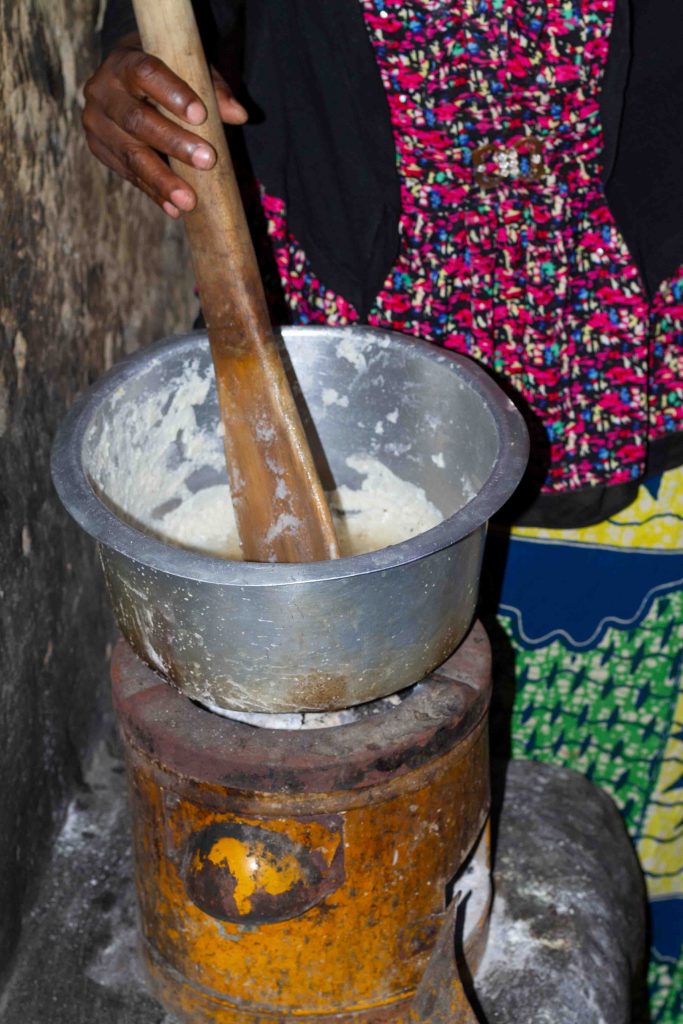“From Refugee to Self-Reliant Farmer in Nakivale”
Women Growing Independence: Musabyimana Angelique Leads Ubumwe Group in Nakivale.
In Nakivale Refugee Settlement, Uganda, women are redefining resilience and independence through agriculture. Musabyimana Angelique, a committed member and caretaker of the Ubumwe group’s sukuma wiki garden, is one of them.
Standing proudly among the thriving rows of greens, Angelique explains that the group is now planning to expand their gardens. “Since the rainy season has begun, it is the right time to plant new nursery beds,” she says. The Ubumwe group is preparing to secure more vegetable seeds, hoping to build on the success of their previous harvests.
That success has been remarkable. From their sukuma wiki gardens, the women collectively earn about UGX 400,000 (USD 105) per month. This income goes beyond household expenses—it enables them to buy personal items, reinvest in agriculture, and cover family needs. Importantly, it also ensures their children eat a balanced diet. “Our children are healthier now,” Angelique notes. “They eat enough vegetables and feed well.”
The group credits Shared Action Africa for empowering them with the knowledge and skills to start and sustain their agricultural ventures. Before joining, many of the women relied solely on the limited support of their husbands or aid assistance. Today, they are proud contributors to their families’ welfare.
“We no longer wait for money from our men or the fathers of our children,” the women explain. “Through agriculture, we make our own money, pay our bills, and lighten the burden on our families.”
What began as a small garden has grown into a source of pride, health, and empowerment. For Musabyimana Angelique and her group, agriculture is not just about food—it is about dignity, independence, and building a future with hope.
ill always be grateful.”

